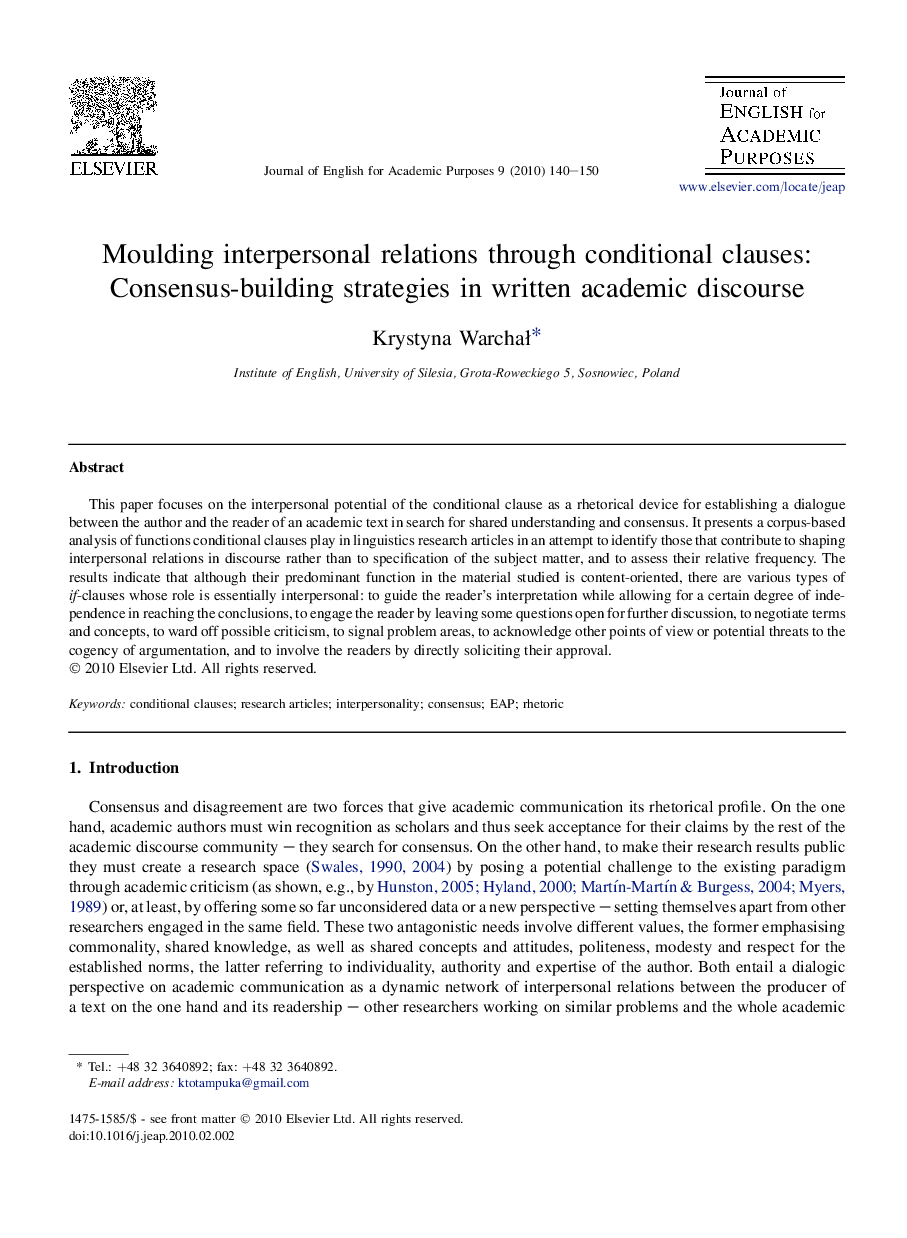| Article ID | Journal | Published Year | Pages | File Type |
|---|---|---|---|---|
| 360380 | Journal of English for Academic Purposes | 2010 | 11 Pages |
This paper focuses on the interpersonal potential of the conditional clause as a rhetorical device for establishing a dialogue between the author and the reader of an academic text in search for shared understanding and consensus. It presents a corpus-based analysis of functions conditional clauses play in linguistics research articles in an attempt to identify those that contribute to shaping interpersonal relations in discourse rather than to specification of the subject matter, and to assess their relative frequency. The results indicate that although their predominant function in the material studied is content-oriented, there are various types of if-clauses whose role is essentially interpersonal: to guide the reader's interpretation while allowing for a certain degree of independence in reaching the conclusions, to engage the reader by leaving some questions open for further discussion, to negotiate terms and concepts, to ward off possible criticism, to signal problem areas, to acknowledge other points of view or potential threats to the cogency of argumentation, and to involve the readers by directly soliciting their approval.
